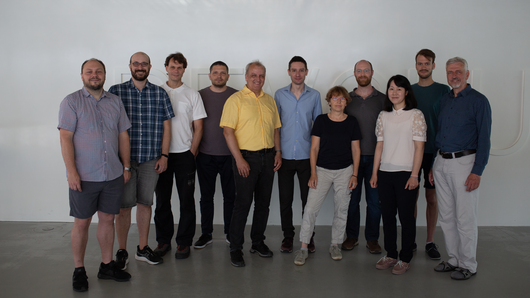High-Performance Computing Center Stuttgart

The Training and Scalable Algorithms (TASC) group is responsible for the organization and implementation of the training activities at HLRS. We provide training courses and educational services for a variety of topics from the areas of high-performance computing, artificial intelligence, and modeling & simulation:
In each area, our goal is to provide an outstanding learning experience by offering training on relevant topics, with up-to-date and audience-focused content, and given by highly-qualified instructors.
Besides our teaching and outreach activities, we conduct research on the development of efficient algorithms for scientific computing applications. Here, our focus is on finding portable approaches that scale well across different domain areas, over heterogeneous hardware configurations, and on parallel systems. Of particular interest is the Julia programming language, which combines ease-of-use with efficient, highly scalable implementations.